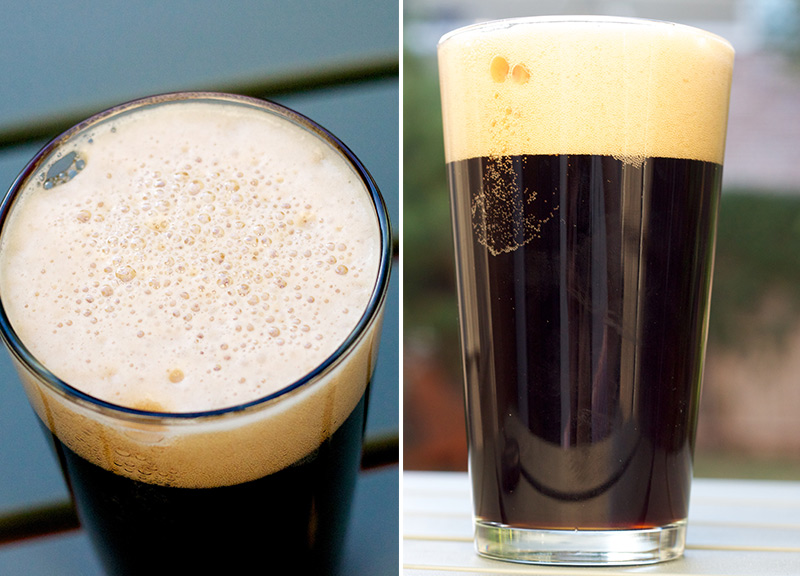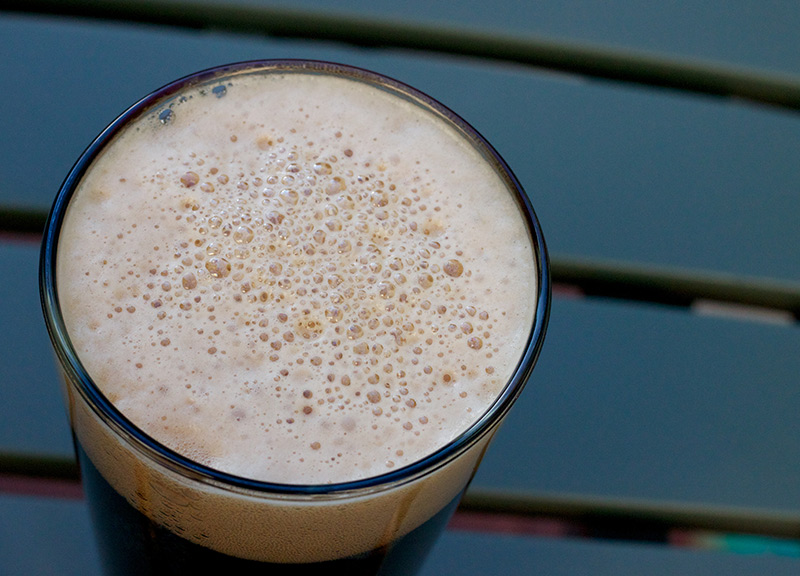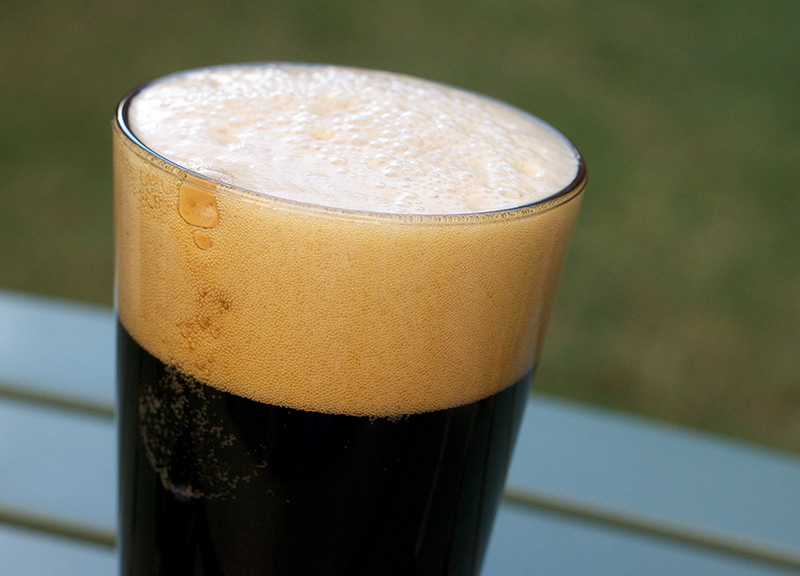Like Your Coffee Black and Your Whiskey Neat? Armadillo Ale Works’ Quakertown Stout Is For You.
Welcome to On Tap! Each week in this recurring feature, we’ll take an in-depth look at one of the many beers now available in the suddenly crowded North Texas brew scene. The goal here is to look at these area beers without our local goggles on and to wonder aloud, “Is this beer good or do I just like it because it’s local?” Should be a fun experiment, no? Cheers to that!
This week, we sipped on Armadillo Ale Works‘ Quakertown Stout.
Fast Facts on Armadillo Ale Works’ Quakertown Stout.
• Style: Imperial Oatmeal Stout.
• ABV: 9.22 percent.
• IBUs (International Bitterness Units): 50.
• Color: Dark brown.
• Availability: Year-round.
Overview.
Armadillo Ale Works has both an interesting and unique existence in the revamped DFW craft beer scene. Armadillo actually first surfaced around 2010, at the same time that the likes of Peticolas Brewing Company and Deep Ellum Brewing Company were fast becoming a reality. But, after a couple of early wins (a successful Kickstarter campaign and a third place finish at the Murphy Center for Entrepreneurship’s 2010 New Venture Creation Contest), Armadillo ran into some early roadblocks as the company worked to raise the capital needed to start its brewery and get its product into the market.
After spending some time selling its own Prohibition-era sodas to raise capital and awareness, Deep Ellum Brewing Company approached Armadillo and offered to produce the Denton copmany’s beers in Deep Ellum’s brewing system. Thanks to Deep Ellum’s generosity, we can now sample Denton’s finest brews at a number of local bars and restaurants.
Today, we look at one of Armadillo’s flagship brews, Quakertown Stout.
Background on Imperial Oatmeal Stouts.
Quakertown Stout is defined by Armadillo as an Imperial Oatmeal Stout. For the purposes of this review, we’ll use the Beer Judge Certification Program’s Oatmeal Stout category‘s guidelines to provide background on the style. Just understand that adding the “imperial” designation basically translates to a stronger (in flavor and alcohol percentage) version of the same base beer.
That said, Oatmeal Stouts should have an aroma of mild roasted grains, sometimes with coffee notes and a bit of sweetness. Oatmeal Stouts should be brown to black and have a thick and creamy tan or brown head. The beer should be medium dry to slightly sweet and include flavors of roasted grains, nuts, coffee, milk chocolate and a medium hop bitterness that does more to balance the beer then anything else.
Appearance.
Quakertown Stout pours very dark brown with a thick, frothy and slightly creamy tan head, which clings to the glass.
Aroma.
This one’s got a soft nutty scent, with the ever so slightest hint of coffee in the background. There’s a little bit of sweetness that gives the beer an almost toffee-like character, too.
Flavor.
The aroma of Quakertown Stout belies the flavor in just about as many ways as possible. Initial sips are greeted with exceptionally strong roasted malts. There’s a bit of sweetness afterward that balances things out for a brief second before you’re hit with the bittering hops, which, combined with the malts used in the recipe, convey a much more aggressive hop character than the stated 50 IBUs in this one might normally suggest. If anything, it reminds me of a Starbucks dark roast drip coffee. The flavors linger on the palate for a long while.
Mouthfeel.
Quakertown Stout has a medium to slightly thick mouthfeel with good levels of carbonation for the style.
Overall Impression.
Quakertown Stout isn’t a bad beer by any means. Drinking it, you can tell that the brewers very much know how to make quality beer. There are no off flavors, and there’s quite a bit of complexity, too. But if I had to say just one thing about the brew, it’s that it’s all a tad heavy-handed. It’s almost as if the brewers, in deciding to make an Imperial version of an Oatmeal Stout, went all in on an over-the-top aggressive flavor profile. And it’s tough to blame them. This kind of approach has been popular among beer nerds for years. But, ultimately, a little more balance would be nice, and it would go a long way in transforming this beer from an occasional sipper to a beverage that can be enjoyed with more regularity.
If you enjoy your coffee black, your whiskey neat and your jalapenos raw, then this beer is your jam. If not, well, maybe you should try a Blood & Honey instead.
Score.
On a scale of 1 to 10, I give Quakertown Stout a 7.
What’s happening in the area beer scene this week (and beyond)? (Powered by Dallas Brew Scene.)
• Friday, October 25. Firestone Walker Beer Dinner at the Hilton Anatole’s Media Grill.
• Saturday, October 26. Boo-ery Tour at Martin House Brewing Company.
• Saturday, October 26. The Curse of Lakewood Party at Lakewood Brewing Company.
• Tuesday, October 29. Oskar Blues Beer Dinner at Boxwood T&G.
• Saturday, November 9, through Saturday, November 16. North Texas Beer Week.
Previous On Tap Reviews:
• Peticolas’ Royal Scandal: 10.
• Revolver’s Blood & Honey: 9.
• Martin House’s Imperial Texas: 9.
• Community’s Trinity Tripel: 9.
• Lakewood’s Punkel: 8.
• Community’s Texas Pils: 7.5.
• Lakewood’s Zomer Pils: 7.5.
• Deep Ellum IPA: 7.
• Peticolas’ The Duke: 6.5.
• Cedar Creek’s Elliott’s Phoned Home Pale Ale: 6
• Lakewood’s La Dame Du Lac: 5.5.
• Franconia Wheat: 3.



